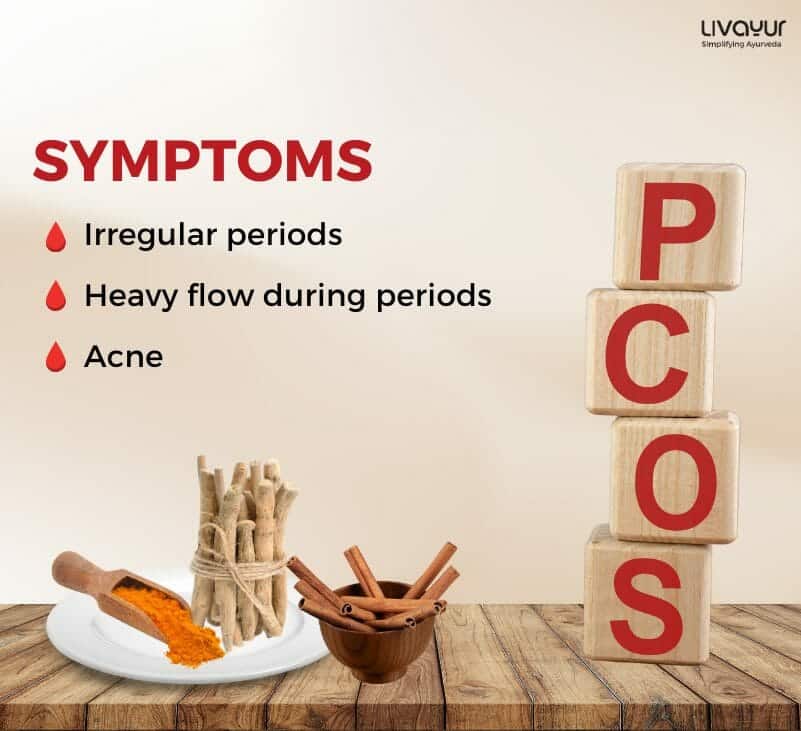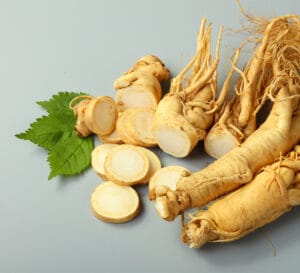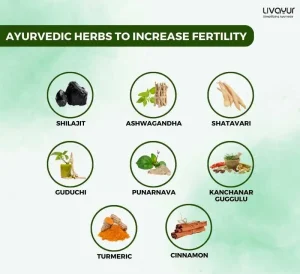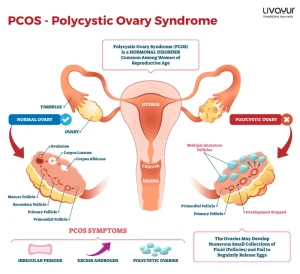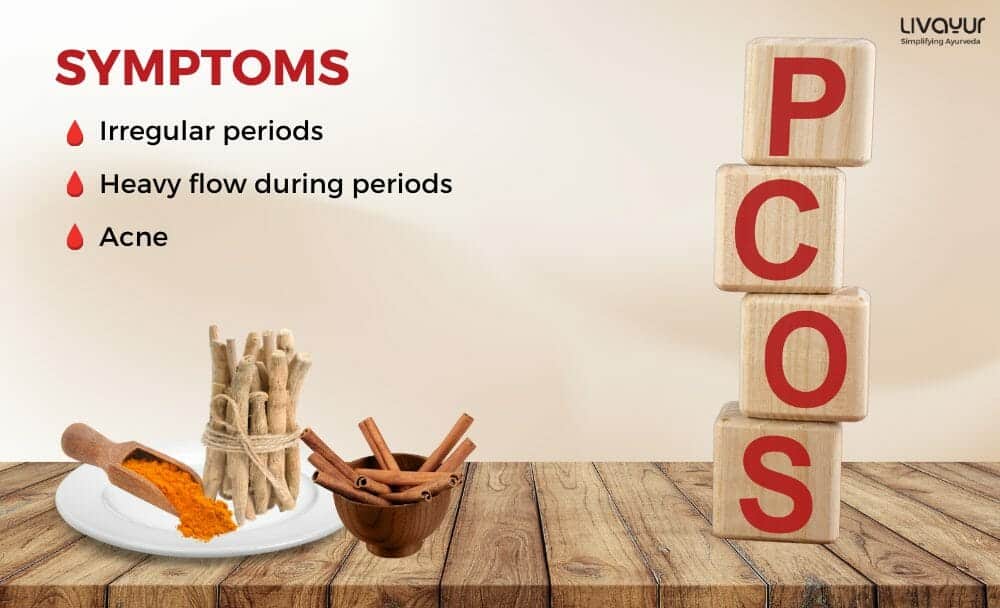
Swasthasya Swasth Rakshanam
Aturasya Vyadhi Parimokshanam !!
Ayurveda is an ancient medicinal practice of India deriving its roots from natural herbs and plants. It believes in maintaining a balance within the body, soul, and mind. It tends to use natural resources to create medicines and treatments. Ayurveda can treat minor diseases to major health problems. The core belief of Ayurveda lies in rejuvenating and balancing the Tridoshas of our body, Pitta, Vata, and Kapha. Ayurveda is not just a medicinal approach but a system of living a healthy lifestyle, in correlation to the nature around us. PCOS is a common hormonal issue among women these days. Like any other disease, PCOS can also be treated effectively through Ayurveda. Ayurveda for PCOS advocates the use of potent herbs, Ayurvedic therapies, yoga, and pranayama to treat the Dosha-Vaishamya, which is at the root of the problem. [2] In this article, we will learn about the Ayurvedic treatment for PCOS in detail. Let’s read:
What is PCOS?
PCOS or Polycystic Ovary Syndrome is a disease found in women of reproductive age. It occurs due to a hormonal imbalance or disorder inside the body. In this condition, multiple cysts are formed inside the ovaries and they start producing high levels of androgen and estrogen, which disrupts the release of eggs, affecting the normal flow of the menstrual cycle. The ovaries get enlarged due to the formation of multiple cysts, leading to a host of unwanted symptoms and consequences with infertility being one of the most disheartening consequences. [1]
The Ayurvedic treatment for ovarian cysts aims at removing the wastes from the body and restoring hormonal balance. PCOS involves the formation of multiple cysts in one or both ovaries instead of just a single cyst. By taking the Ayurvedic route and embracing the Ayurvedic treatment for PCOS, a woman can get relief from the various unwanted symptoms of PCOS.
What are the symptoms of PCOS? [1]
- Irregular periods
- Heavy flow during periods
- Acne on the face, chest, etc
- Headaches and migraines
- Metabolic problems leading to obesity or high cholesterol level
- Anxiety and stress
- Excess hair growth on the face and body
What will an unchecked PCOS lead to? [1]
- Infertility is one of the most adverse effects of PCOS. The major cause of infertility is found to be PCOS.
- PCOS can lead to many metabolic syndromes such as obesity, high cholesterol levels, high blood pressure, and diabetes.
- Due to irregular and inconsistent periods, PCOS may result in endometrial cancer.
- Undergoing significant hormonal changes and imbalances may cause the patient to go into depression.
- Obesity may lead to breathing issues during sleeping, causing Sleep Apnea among women.
Ayurvedic herbs to aid the treatment of PCOS:
PCOS Ayurvedic treatment involves the use of certain herbs as listed below:
1. Ashwagandha:
High cortisol levels lead to stress, which is one of the leading causes of PCOS. Ashwagandha helps in maintaining the cortisol levels inside our body. [2]
2. Cinnamon:
One of the most efficient Ayurvedic remedies is cinnamon or dalchini. It helps in reducing the insulin resistance inside the body and also helps in smooth flow during the menstrual cycle. [2]
3. Turmeric:
Curcumin present in turmeric or haridra reduces insulin resistance and its anti-inflammatory properties help in relieving the pain experienced during the heavy flow of the menstrual cycle.
4. Tulsi:
The benefits of Tulsi or Holy Basil are innumerable. It is one of the best herbs used while treating PCOS. Tulsi reduces our cortisol levels and blood sugar while also efficiently treating metabolism disorders.
These above-mentioned herbs are used in the best Ayurvedic medicine for PCOS. The formulations made from these herbs can effectively manage the symptoms of PCOS and balance the hormones in a woman’s body.
Panchakarma Treatment for PCOS
Panchakarma Treatment for PCOS is the best treatment for PCOS in Ayurveda. It strives to detox and cleanse our body to restore and rejuvenate hormonal and metabolic disorders or imbalances. Hence, Panchakarma therapies tend to regulate the root causes of PCOS such as insulin resistance, anxiety, stress, obesity, etc. Some of the most efficient Panchakarma therapies used in the treatment of PCOS are:
1. Vamana:
Vamana is a Panchakarma therapy that removes toxins from our bodies by inducing vomiting (emesis). It helps in maintaining hormonal balances and improving fertility in our body. It is an advanced therapy that varies from patient to patient. [2]
2. Virechana:
Virechana removes toxins by inducing purgation or boosting bowel movements. It helps regulate many symptoms that cause PCOS including obesity, irregular menstrual cycle, etc. [2]
3. Basti:
One of the most recommended therapies for PCOS, Basti Chikitsa is a procedure that involves herbal and Ayurvedic remedies given through enema to nourish and detoxify the reproductive system and boost fertility. [2]
4. Udvartana:
Udvartana involves massages to detoxify the skin and regulate metabolism. This helps in better circulation of blood and helps in managing PCOS.
Dietary Recommendations for PCOS [3]
- Reduce the intake of artificial sweeteners and sugary foods
- Increase the consumption of fruits and vegetables
- Reduce the intake of salt
- Involve whole grains in your diet
- Eat fewer saturated fats such as red meat
Yoga Asanas for PCOs
Ayurveda also encourages yoga poses such as Sarvagasana, Ardhmatsyendrasana, Matsyasana, and Ustrasana to help manage PCOS. [2]
FAQs
1. What are the different types of PCOS?
The different types of PCOS are:
Insulin-resistant PCOS
This type of PCOS is caused by the metabolic syndrome in which the cells of your muscles stop responding to insulin. That leads to an increase in insulin levels and also increases the production of androgens. Under such a scenario, the condition of PCOS develops.
Inflammatory PCOS
This type of PCOS is triggered by inflammation which affects ovulation and disrupts the hormonal balance. Due to the hormonal imbalance, the production of androgens is increased and that leads to inflammatory PCOS.
Post-pill PCOS
If a woman who is used to taking contraceptive pills suddenly stops taking those pills, she may develop post-pill PCOS. Stopping those pills increases the production of androgens, leading to PCOS.
Adrenal PCOS
This type of PCOS is mainly triggered by stress. Too much stress may create hormonal imbalances in the body, increasing the production of DHEAS, a kind of androgen produced by the adrenal glands. This may lead to adrenal PCOS.
2. How would you know that your PCOS is getting reversed?
The following signs will tell you that your PCOS is getting reversed:
• Your menstrual cycle will start getting more regular
• You will start shedding weight
• Your acne will get better
• You will feel more energetic
• The quality of your sleep will improve
• There will be no new growth of unwanted facial hair
3. In what way does PCOS lead to obesity?
Women with PCOS are generally obese or overweight because PCOS triggers increased insulin production and the insulin buildup results in the buildup of fat.
4. How can the symptoms of PCOS be managed through Western medicine treatment?
The most used method is taking a birth control pill. Apart from that, intrauterine devices, vaginal rings, injections, and skin patches are some of the other treatments given to women with PCOS.
5. Can massage therapy relieve the discomforts associated with the symptoms of PCOS?
Multiple ovarian cysts may cause the surrounding muscles to get tensed up. The discomfort due to this may increase during menstruation. To relieve that discomfort you may try massage therapy, massaging the areas like buttocks, stomach, thighs, and lower back.
6. Which Ayurvedic drink helps manage the symptoms of PCOS?
Taking herbal tea may be helpful. Teas made from herbs like ashwagandha, daruharidra, and lodhra are especially effective.
Conclusion
Many women endure extreme discomfort caused due to PCOS and with no long-term relief gained with various treatments, they tend to give up on this disease. Ayurvedic remedies for PCOS involve a change in lifestyle, dietary and nutrition consumption, and the use of natural herbs with long-term benefits. In other words, Ayurvedic treatment for PCOS reaps long-term and durable results while dealing with PCOS.
Even the Ayurvedic Panchakarma therapies have been proven fruitful in this regard as they cure the root causes of PCOS and hence deal effectively with the disease. What must be noted here is that the treatment depends upon the condition of the patient and their body type. Hence, it must be carefully assessed by an Ayurvedic Physician.
Disclaimer
The content provided by this article is solely for informational purposes and is not professional medical advice. If you wish to use Ayurveda to cure any ailment, consult a doctor first.




